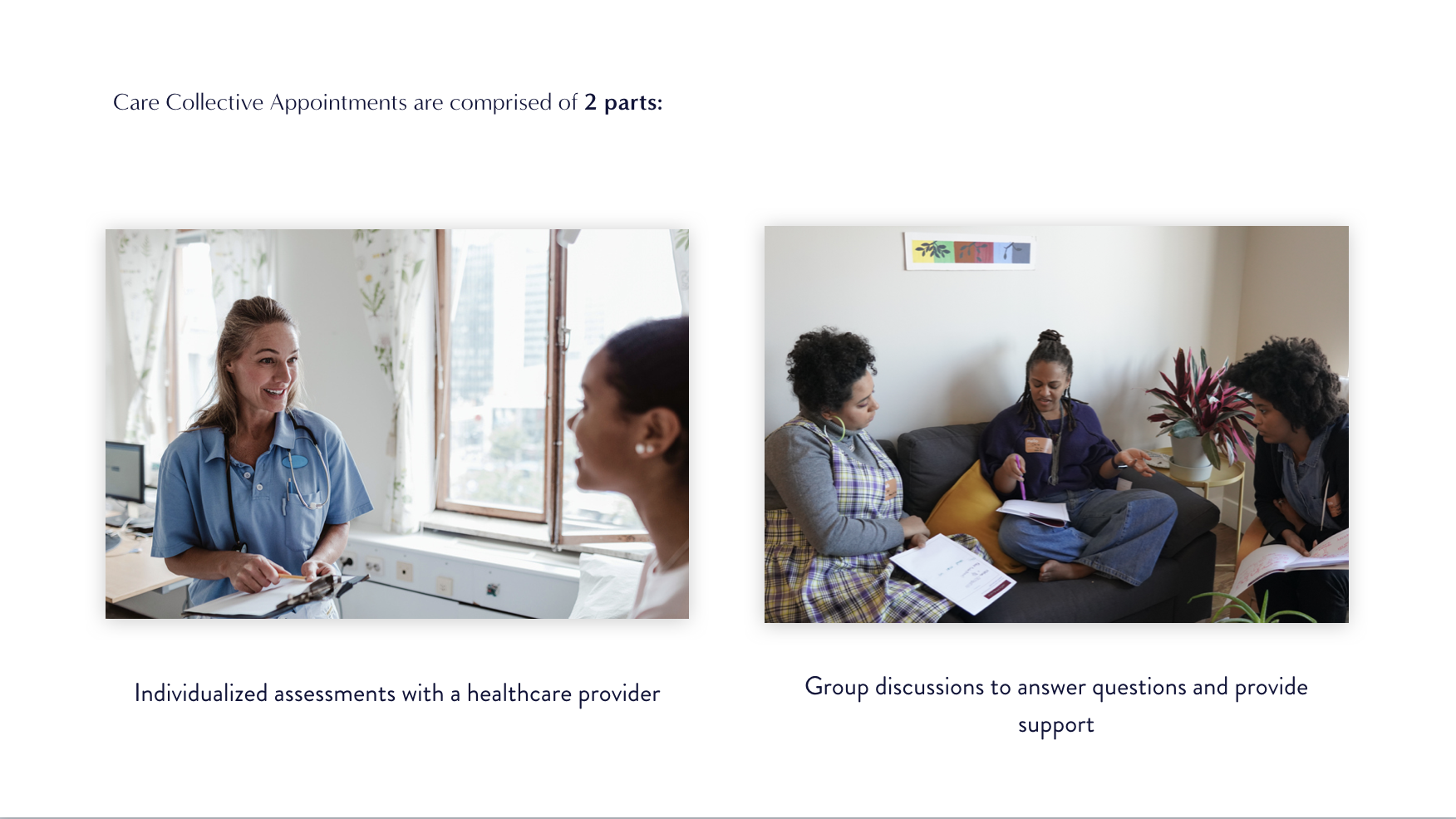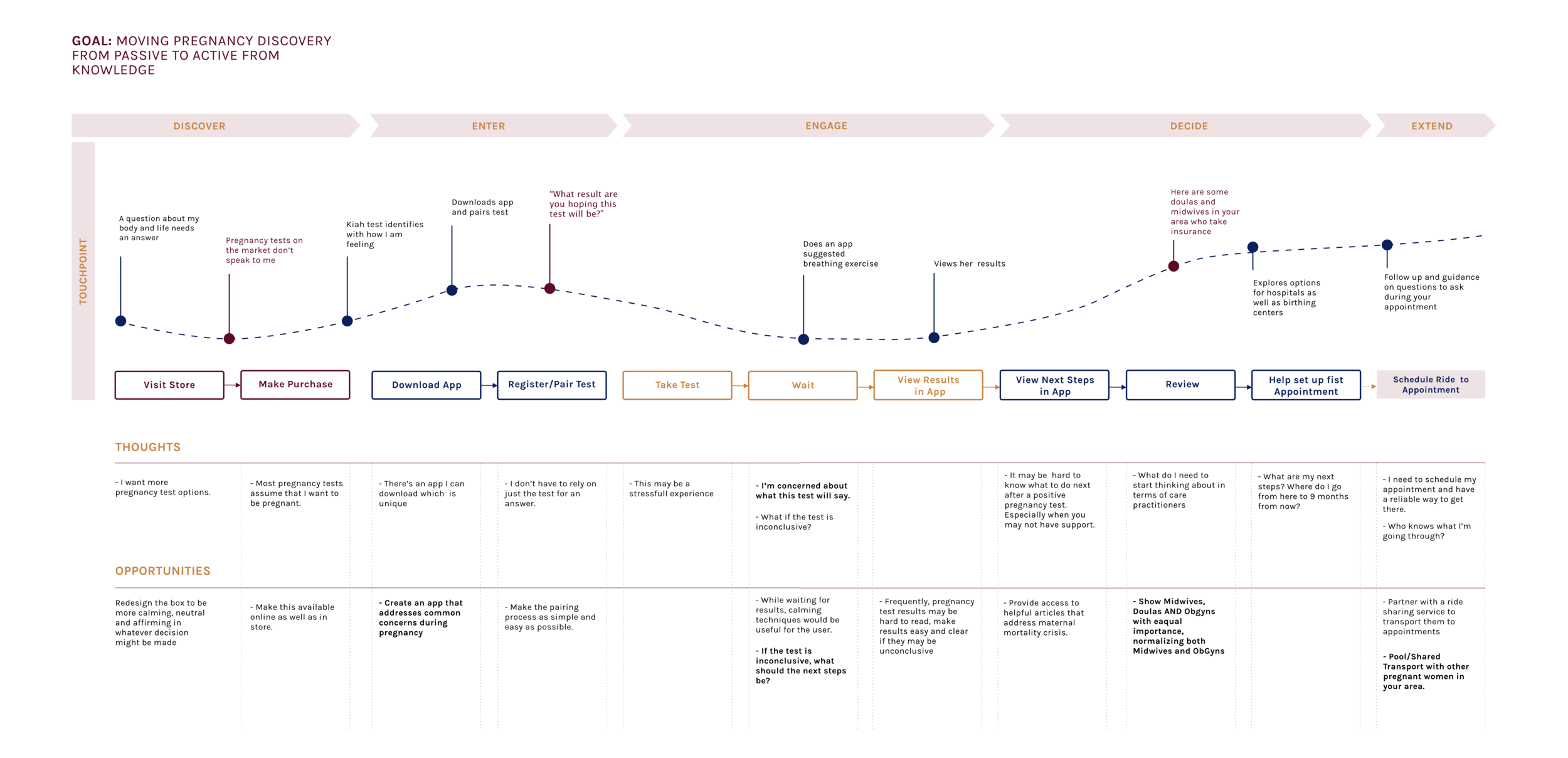The Care Collective
Designing a New Vision of Maternal Care
Type: Service Design, Research, Prototyping
Context: Masters Thesis, Spring 2020
THE CHALLENGE
Economic inequality which disproportionately affects black pregnant women leads to a lack of access to medical treatment, affecting their health. This further leads to assumptions that can negatively affect their quality of care creating a vicious cycle.
How might we redesign a new vision of maternal care?
THE OPPORTUNITY
How might we redesign the prenatal clinic to bringing care out of the examination room and into the collective? The Care Collective proposed a medical facility that redefines prenatal care by bringing women into groups for their care, after individualized assessments.
Research and Planning
This work is part of my Masters Thesis studying black women and maternal mortality: Birth Reborn: Using Design to Address Barriers to Equitable Maternal Care for Black Women. The Maternal Mortality Rate in the US has nearly doubled from 10.3 to 23.8 per 100,000 births. And Black women are 3 times more like to die from childbirth related causes. Maternal and childbirth related deaths are often due to preventable causes. My primary research of mapping out the ecosystem confirmed this.
I began to synthesis my research my mapping the journey of pregnancy from discovery to post delivery. But something became clear as I developed my user journey map. Much of the journey was negative.
I also learned that fear of support is a huge factor in delaying prenatal care from a subject matter expert.
I then switched lenses to narrowing my scope to mapping the current pregnant patient journey based on my research and insights from my co-creation session , it became clear that for many black women, seeking care is a series of negative touch-points with few highlights. There is an opportunity to create change in the traditional medical model of care.
Research Synthesis
A mockup of what the clinic could potentially look like.
Prototyping
A prototype of a care collective session with black women in my community and through my research I was able to rewrite the user journey in a unique way.
















